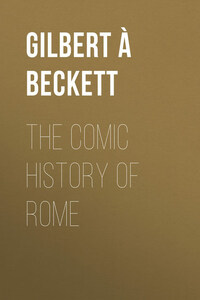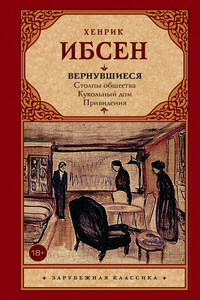Some explanation is perhaps due from a writer who adopts the title of Comic in relation to a subject which is ordinarily considered to be so essentially grave as that of History. Though the epithet may be thought by many inappropriate to the theme, this work has been prompted by a very serious desire to instruct those who, though willing to acquire information, seek in doing so as much amusement as possible.
It is true that professedly Comic literature has been the subject of a familiarity not unmixed with contempt on the part of a portion of the public, since that class of writing obtained the popularity which has especially attended it within the last few years; but as whatever disrepute it has fallen into is owing entirely to its abuse, there is no reason for abandoning an attempt to make a right use of it. The title of Comic has therefore been retained in reference to this work, though the author has felt that its purport is likely to be misconceived by many, and among them not a few whose judgment he would highly esteem, who would turn away from a Comic History solely on account of its name, and without giving themselves the trouble to look into it. Those persons are, however, grievously mistaken who have imagined that in this, and in similar books from the same pen, the object has been to treat History as a mere farce, or to laugh at Truth – the aim of the writer having invariably been to expose falsehood, and to bring into merited contempt all that has been injudiciously, ignorantly, or dishonestly held up to general admiration. His method of telling a story may be objected to; nevertheless, if he does his utmost to tell it truly, he ought not, perhaps, to be very severely criticised for adopting the style in which he feels himself most at home; and if his opinions are found to be, in the main, such as just and sensible persons can agree with, he only asks that his views and sentiments may be estimated by what they contain, and not by any peculiarity in his mode of expressing them.
The writer of this book is animated by an earnest wish to aid, as far as he is able, in the project of combining instruction with amusement; and he trusts he shall not be blamed for endeavouring to render such ability as he possesses available for as much as it is worth, in applying it to subjects of useful information.
Those who are not disposed to approve of his design, will perhaps give him credit for his motive; and he may with confidence assert, that, from the care and attention he has bestowed upon this work, it will be found to form (irrespective of its claims to amuse) by no means the least compendious and correct of the histories already in existence of Rome to the end of the Commonwealth. If he has failed in justifying the application of the title of Comic to his work, he has reason to believe it will be found accurate. Though the style professes to be light, he would submit that truth does not necessarily make more impression by being conveyed through a heavy medium; and although facts may be playfully told, it is hoped that narrative in sport may be found to constitute history in earnest.
CHAPTER THE FIRST.
FROM THE FOUNDATION OF ROME TO THE DEATH OF ROMULUS
The origin of the Romans has long been lost in that impenetrable fog, the mist of ages; which, it is to be feared, will never clear off, for it unfortunately seems to grow thicker the more boldly we try to grope about in it. In the midst of these fogs, some energetic individual will now and then appear with a pretty powerful link, but there are not enough of these links to form a connected chain of incidents.
One of the oldest and most popular traditions concerning the origin of the Romans, is that founded on the remarkable feat of filial pick-a-back alleged to have been performed by Æneas, who is frequently dragged in head and shoulders, with his venerable parent, to lead off the march of events, and, as it were, open the ball of history.
It is said that after1 the siege of Troy, Æneas snatched up his Lares and Penates in one hand, and his father, Anchises, in the other; when, flinging the former over the right shoulder, and the latter over the left, he ran down to the sea-shore, called "A boat a-hoy," and escaped from the jaws of destruction into the mouth of the Tiber. There are many reasons for disbelieving this story, and it is quite enough to deprive it of weight to consider what must have been the weight of Anchises himself, and the large bundle of household images that Æneas is alleged to have been burdened with. Putting probability in one scale, and an elderly gentleman, with a lot of Lares and a parcel of Penates in the other, there can be no doubt which will preponderate. It happens, also, that Troy is usually said to have been destroyed 430 years before Rome was founded,2 so that it would have been to this day as unfounded as the tale itself, if the city had had no other foundation than that which Æneas was supposed to have given it.
The Latin Bards have adorned this story in their own peculiar way, by adding that Æneas, on his arrival in the Tiber, resolved to sacrifice a milk white sow, in gratitude for his safety. The sow, who must have been an ancestor of the learned pig, got scent of her fate, and running two or three miles up the country, produced a sad litter of thirty little ones; when Æneas, fancying he heard a voice telling him to build a town on the spot, determined, "please the pigs," to found a city there. The classical story-teller goes on to say, that Latinus, king of the Latins, happened to be at war with Turnus – or as we might call him Turner – King of the Rutuli, when the Trojans arrived, and the former, thinking it better worth his while to make friends than foes of the immigrants, gave them a tract of land, which rendered them extremely tractable. On the principle that one good turn deserves another, they turned round upon Turnus, and completely routed the Rutuli. Latinus, to show his gratitude, gave Lavinia – not the "lovely young" one, who Thomson tells us, "once had friends;" but his own daughter of that name – in marriage to Æneas, who at the death of his father-in-law, ruled over the city, and called his colony Lavinium. Tradition tells us further that Æneas had a son, Ascanius, sometimes called Parvus Iulus, or little Juli, who subsequently left Lavinium, and built Alba Longa – a sort of classical long acre – in that desirable neighbourhood known as the Alban Mount, which, from its becoming subsequently the most fashionable part of the city, may deserve the name of the Roman Albany.








